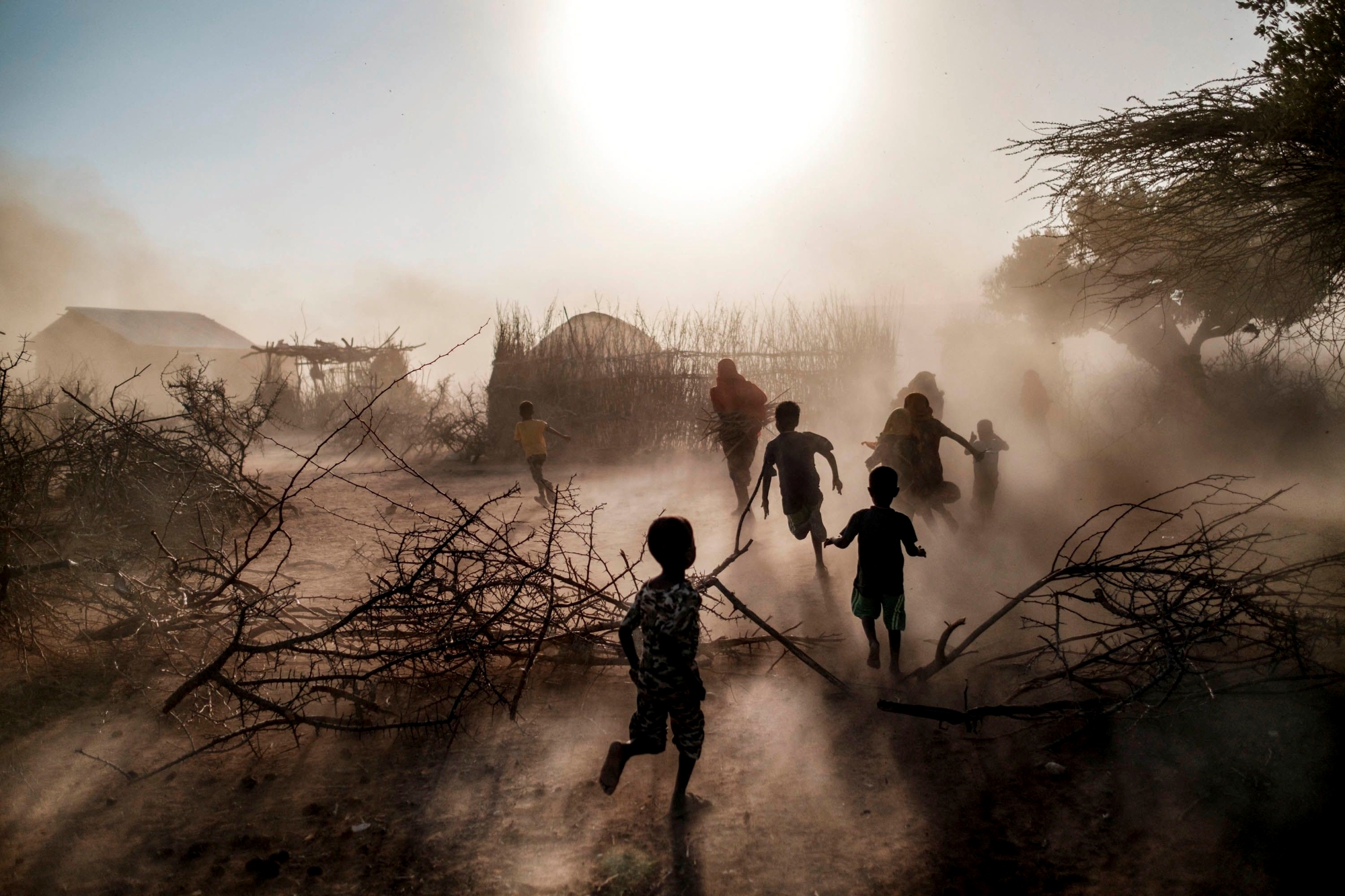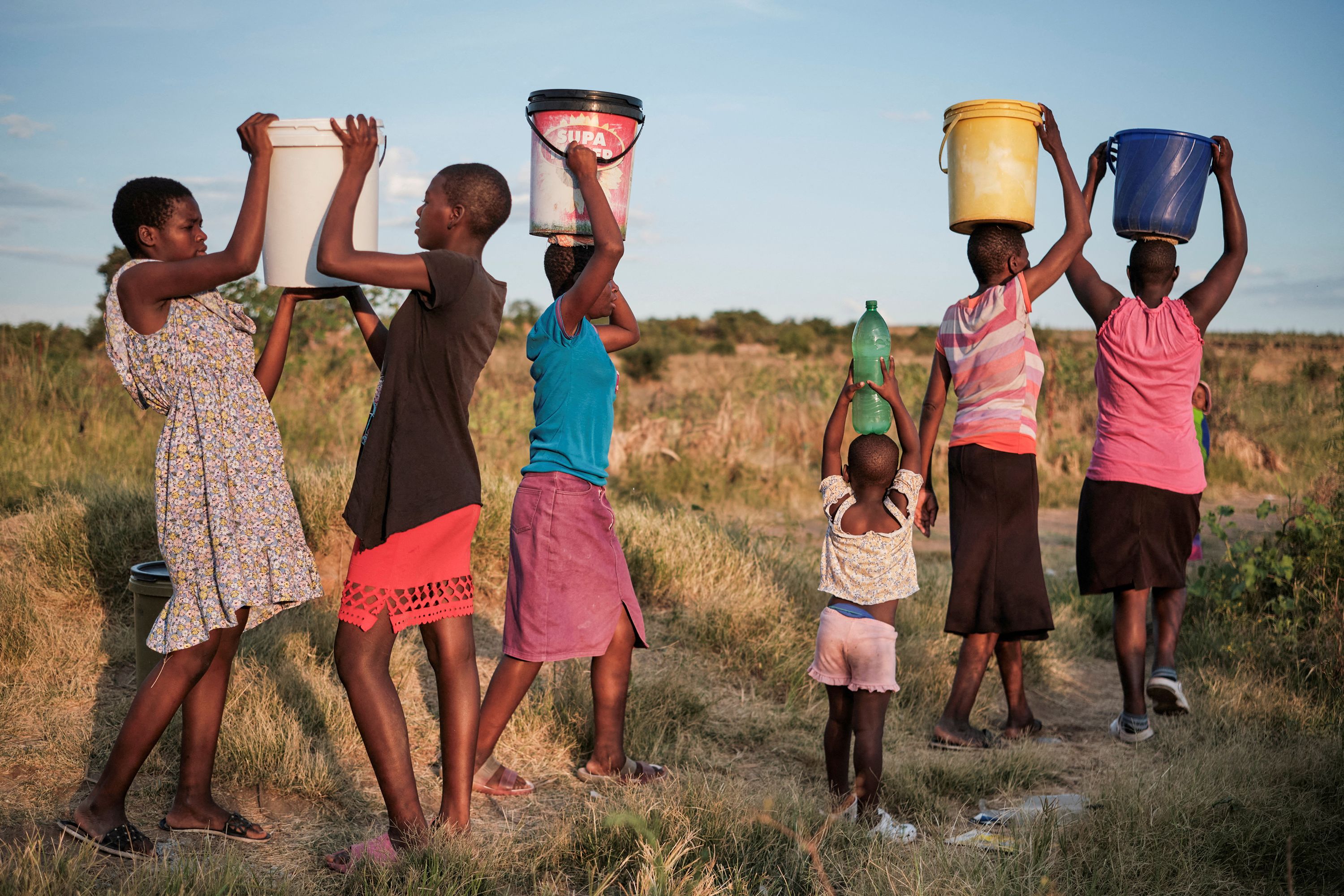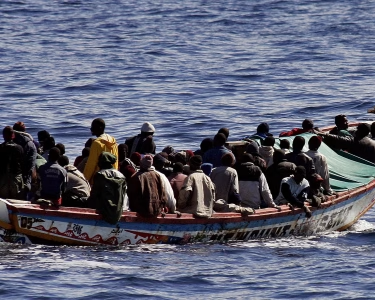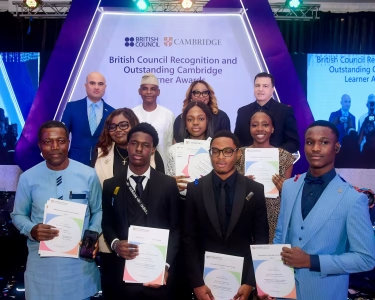BAKU, Azerbaijan, Nov 16 (AfrikTimes) – Children from East Africa, where heatwaves and floods have shuttered schools in recent months, are pushing for world leaders to protect their education – and their future – at the United Nations COP29 climate summit in Azerbaijan.
Seventeen-year-old Siama from South Sudan missed two weeks of school in April when temperatures surged to 45 degrees Celsius (113 Fahrenheit).
“Our country is a developing country, so we do not have climate-resilient buildings … and do not have ACs in school,” she said. More than 40 million children were kept out of classrooms this year, from Asia to Africa, due to extreme heat, which scientists say has been made worse and more frequent by climate change.
 Seaweed farmers carry their harvest used to make cosmetic products, from the Indian Ocean to the open beach in Kibuyuni village, Kwale county, Kenya October 21, 2024.
Seaweed farmers carry their harvest used to make cosmetic products, from the Indian Ocean to the open beach in Kibuyuni village, Kwale county, Kenya October 21, 2024.
Naomi, 14, also struggled with school closures in South Sudan, which have significantly impacted her studies.
“This really affected me because this year, I am sitting for my national exams,” she said. At home, “we were not able to concentrate because it was hot, the temperatures were really high, you have to focus more on reducing the temperature of your body by going to bathe every two hours”.
In Somalia, 16-year-old Nafiso often loses sleep worrying about her future amidst the climate crisis.
“My father – he is a farmer. When there is a lot of heat, it becomes a lot of droughts. When there is a lot of rain, it is difficult to get the food,” she said.
Sometimes she does not have enough food to eat three times a day. Floods, too, have at times prevented her from getting to school.
“This makes us deeply concerned about the future,” Naomi added. “If no action is taken—if there is no climate finance to build climate-resilient schools in our country—what will happen to us?”








